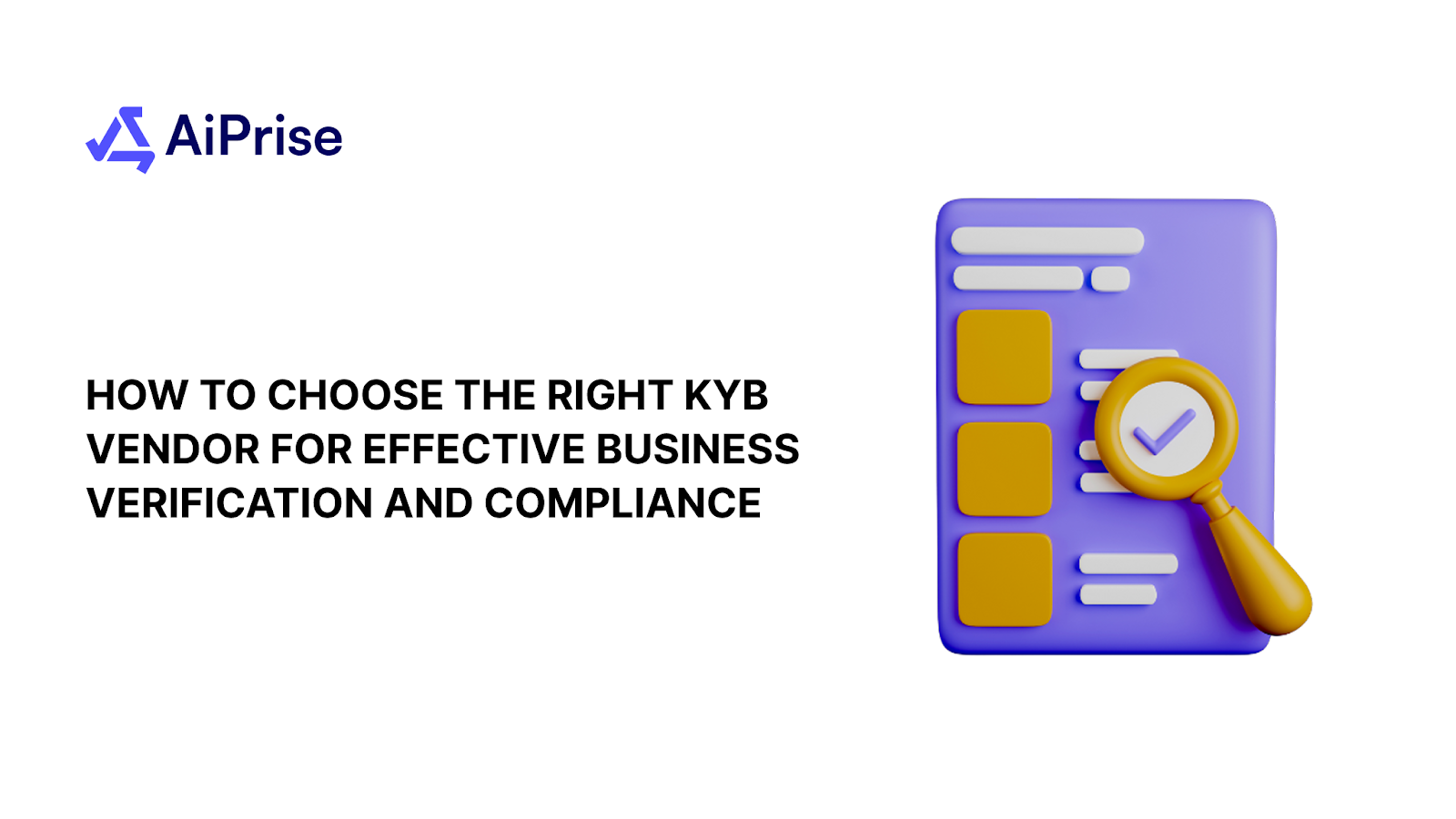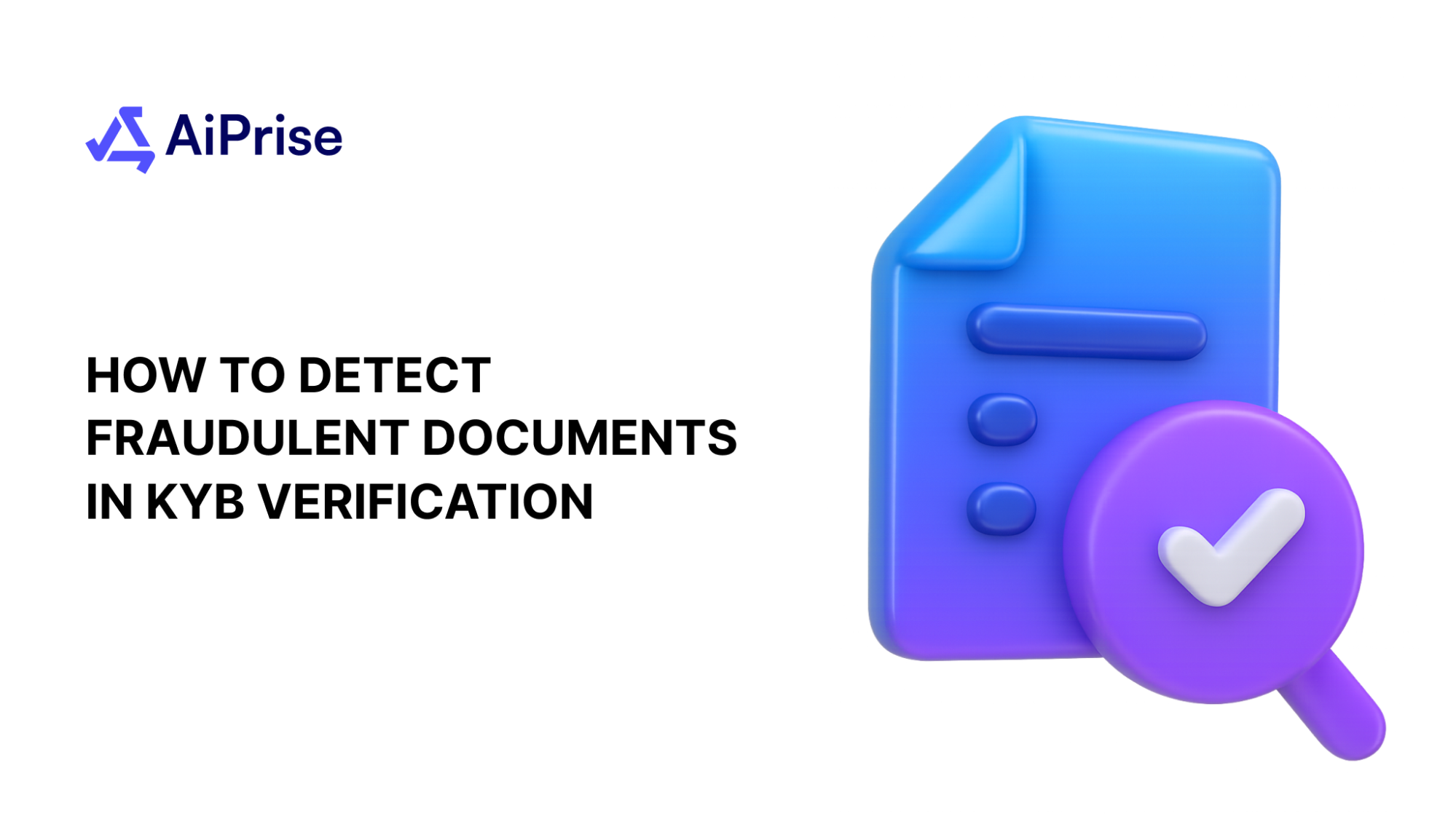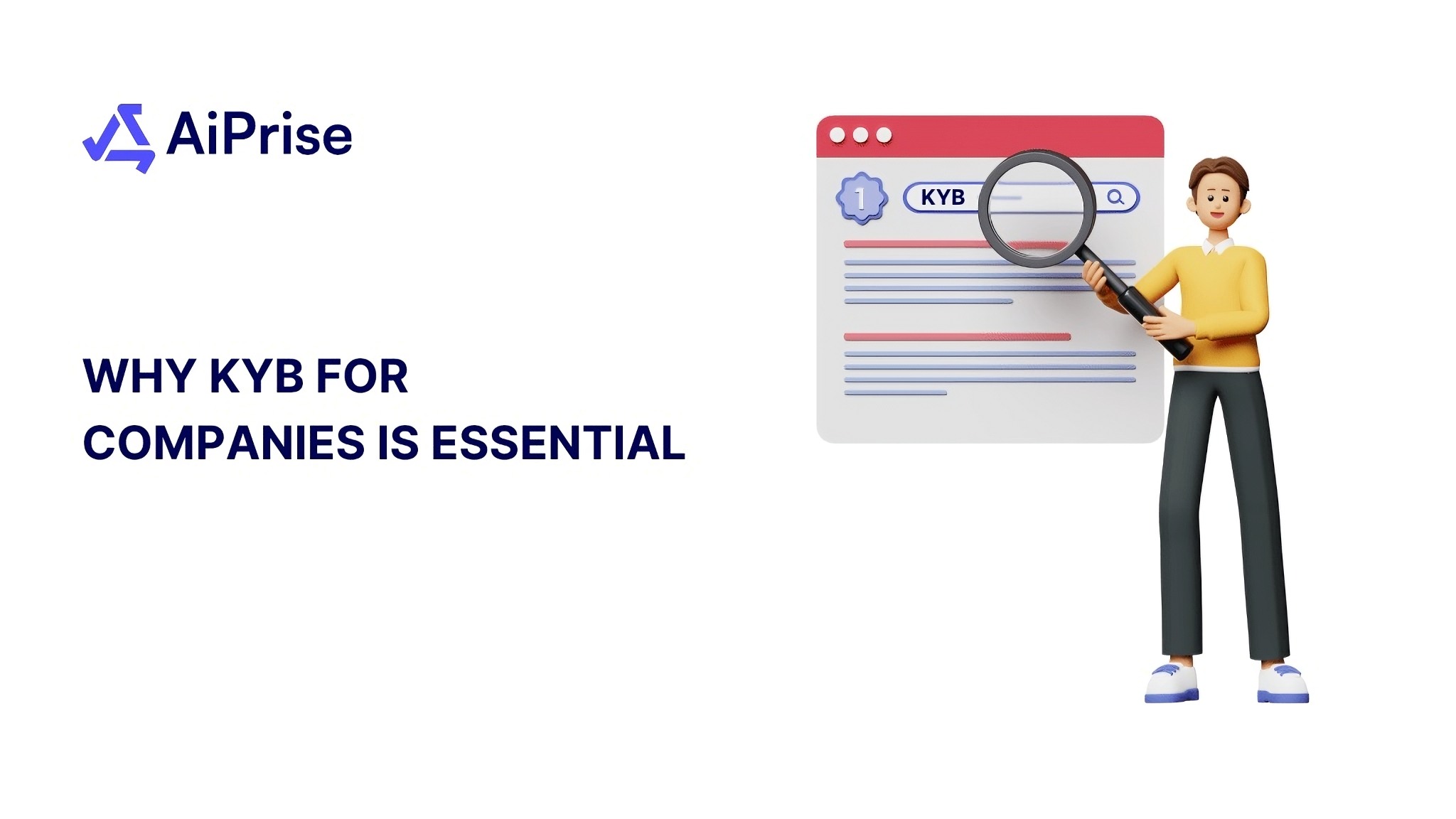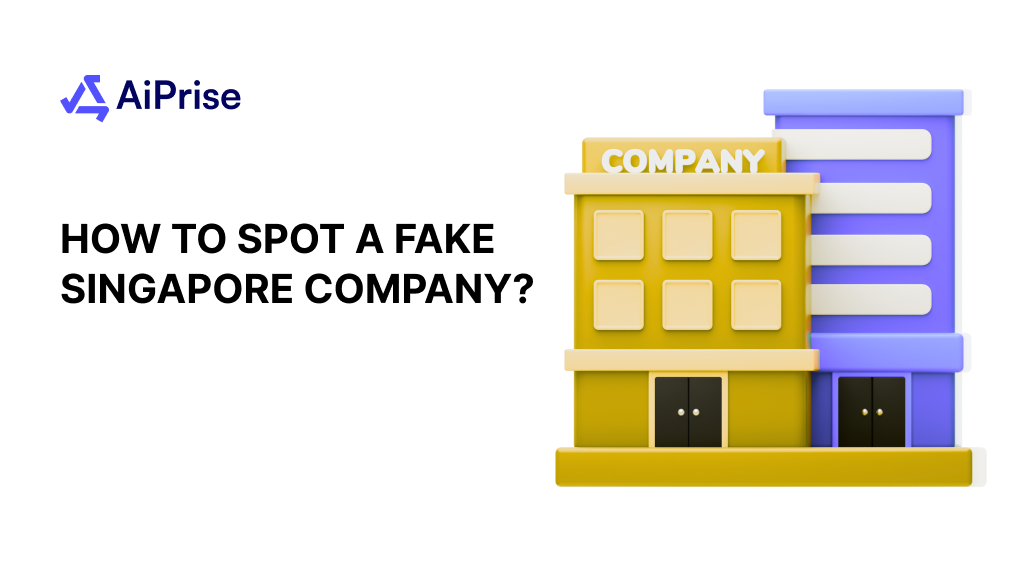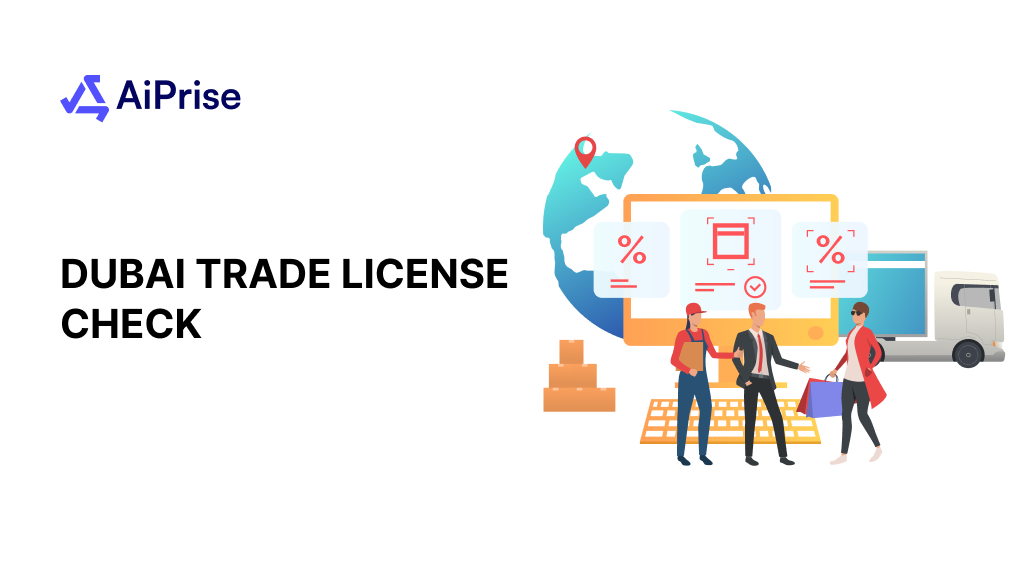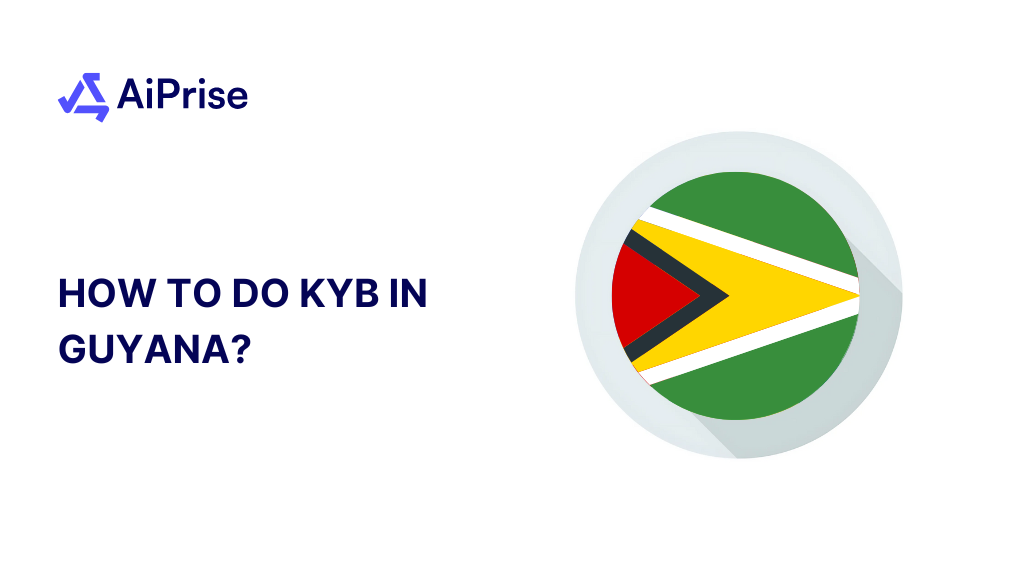AiPrise
5 min read
March 26, 2025
How To Do Business Verification In Holy See?

Key Takeaways










The Holy See, the jurisdiction of the Vatican City, represents a unique blend of historical significance and modern-day governance. Conducting Know Your Business (KYB) checks in the Holy See requires a clear understanding of its distinct regulatory framework and the nuances of its organizational structure.
Ensuring compliance here is vital for establishing legitimate partnerships while adhering to its specific governance protocols.
This guide explores how to effectively conduct KYB in the Holy See, detailing its regulatory environment, requirements, and best practices for compliance.
KYB in Holy See
Know Your Business (KYB) refers to verifying the legitimacy, ownership, and compliance of entities you engage with. In the Holy See, KYB is particularly important due to its unique status as a religious and sovereign jurisdiction.
Businesses and financial institutions dealing with the Holy See must prioritize KYB to align with anti-money laundering (AML) regulations and ensure secure transactions. By conducting thorough checks, you protect your organization from risks associated with fraud and non-compliance.
Understanding the Regulatory Framework in Holy See
The regulatory framework of the Holy See is distinct from other jurisdictions, combining religious governance with modern compliance measures. Its regulations align with international AML standards to ensure financial integrity.
Key regulatory bodies include:
- Financial Information Authority (AIF): The AIF oversees AML and Counter-Terrorism Financing (CFT) regulations, ensuring transparency in financial operations.
- Governatorate of Vatican City State: Handles the administration and governance of Vatican City, including commercial activities.
These regulatory bodies ensure that KYB processes align with international expectations while respecting the Holy See’s unique status. As you gather insights into these requirements, it’s important to understand what documentation is necessary for compliance.
Documentation Needed for KYB Compliance
To comply with KYB requirements in the Holy See, ensure you collect and verify the following documents:
- Organizational Proof: Certificates of establishment or affiliation with the Holy See.
- Ownership Details: Documentation identifying Ultimate Beneficial Owners (UBOs).
- Financial Statements: Recent audited financial records.
- Identification Documents: Passports or official IDs of key stakeholders.
- Tax Compliance Records: Proof of adherence to applicable tax regulations.
While gathering these documents can be challenging, cutting-edge verification tools like AiPrise can simplify and expedite this task.
Having these documents on hand ensures a smooth and compliant KYB process. Let’s outline the steps involved in conducting effective KYB checks in the Holy See.
Steps to Conduct KYB in Holy See
Conducting KYB effectively involves several systematic steps:
- Initial Assessment: Determine which entities require KYB checks based on risk levels.
- Document Collection: Gather all necessary documentation as outlined previously.
- Verification Process: Validate the authenticity of documents through reliable sources.
- Risk Assessment: Analyze potential risks associated with each entity based on gathered data.
- Ongoing Monitoring: Implement procedures for continuously monitoring business relationships to ensure ongoing compliance.
Following these steps will help streamline your KYB process while maintaining adherence to regulations. As you implement these steps, be aware of potential challenges that may arise during the process.
Get insights into KYB practices in Ethiopia here.
Challenges in Implementing KYB in the Holy See
Implementing effective KYB processes can present several challenges:
- Complexity of Regulations: Navigating varying regulations can be daunting, especially for businesses operating across multiple jurisdictions.
- Data Collection Difficulties: Gathering accurate information can be time-consuming and resource-intensive.
- Staff Expertise Gaps: A shortage of qualified personnel can hinder practical compliance efforts.
Addressing these challenges requires a strategic approach that includes training staff and utilizing technology where possible. The following section gives a deeper understanding of how technology can assist in streamlining your KYB processes in the Holy See.
By utilizing AiPrise’s automated verification systems, businesses can overcome data collection challenges, ensuring accuracy and efficiency.
Technology and Tools for KYB in Holy See
Leveraging technology can significantly enhance your KYB processes. Consider utilizing:
- Automated Verification Systems: These tools can streamline data collection and validation processes.
- Risk Assessment Software: Implement solutions that analyze risk factors associated with potential business partners.
- Compliance Management Platforms: Use integrated systems to monitor compliance status continuously and generate reports as needed.
Adopting these technologies will improve efficiency and reduce human error during verification processes. As you integrate technology into your processes, it’s vital to understand compliance and audit procedures related to KYB.
Compliance and Audit Procedures
Maintaining compliance with KYB regulations requires regular audits and updates to your procedures. Key practices include:
- Regular Reviews: Conduct periodic assessments of your KYB policies to ensure they align with current regulations.
- Documentation Maintenance: Keep thorough records of all verification activities for accountability purposes.
- Training Programs: Provide ongoing staff training for those in compliance activities to inform them about regulatory changes.
Implementing these practices will help ensure that your organization remains compliant with local laws while effectively managing risks associated with business partnerships.
Conclusion
Conducting KYB in the Holy See presents unique challenges, but it’s also an opportunity to establish strong, transparent partnerships in one of the most distinctive jurisdictions in the world. Success in this environment depends on a tailored approach that respects the Holy See’s governance structures while meeting international compliance standards.
The key is to turn compliance into a strategic advantage by adopting efficient processes and the right technology. AiPrise offers innovative KYB solutions to address the complexities of operating in the Holy See, helping you streamline verification and ensure regulatory alignment.
Let us help you build trust and confidence in your partnerships—explore our solutions at AiPrise.
You might want to read these...

Aiprise has helped streamline our KYB (Know Your Business) flow in 100+ countries. No other tool comes close.





Speed Up Your Compliance by 10x
Automate your compliance processes with AiPrise and focus on growing your business.


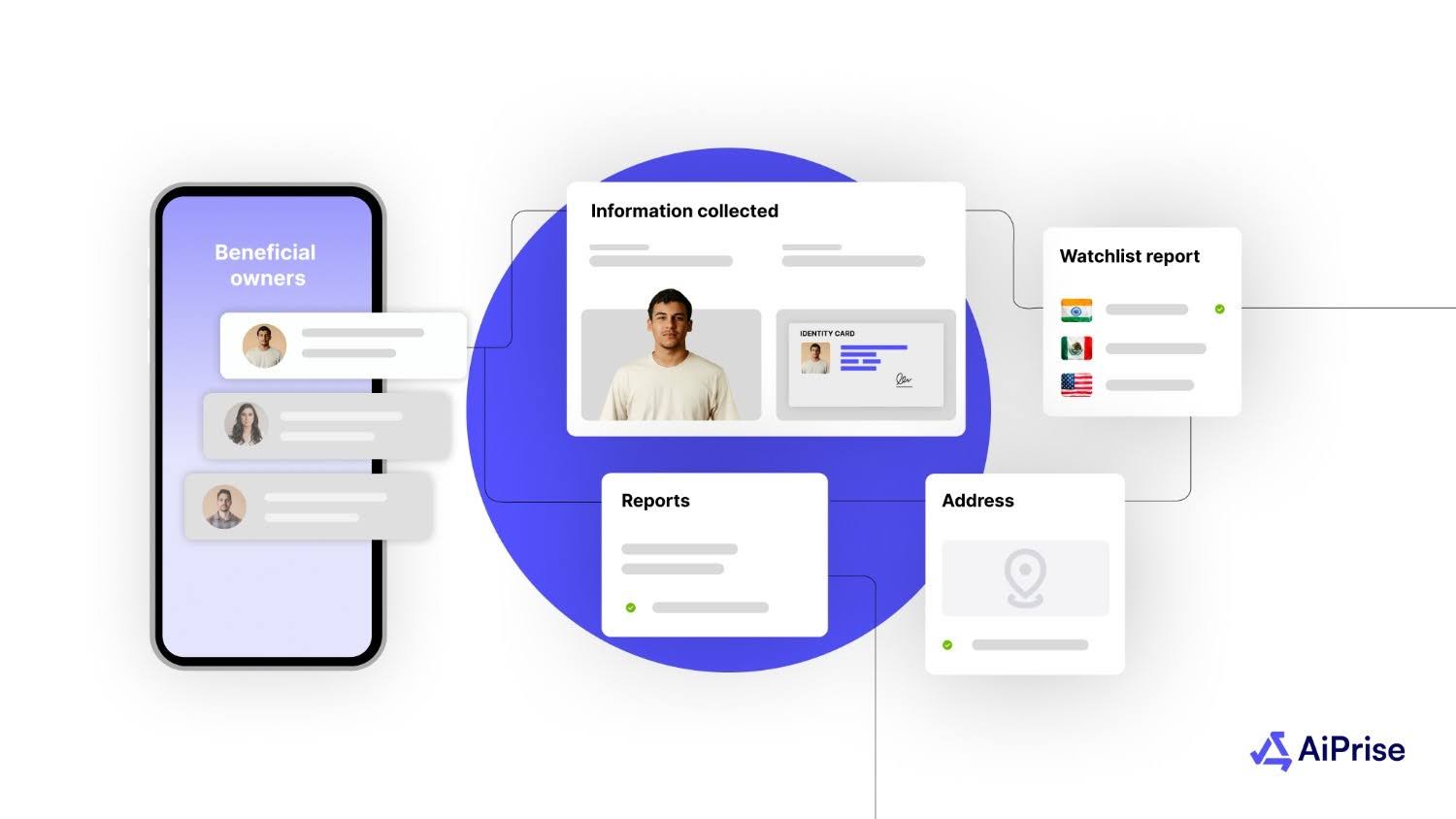

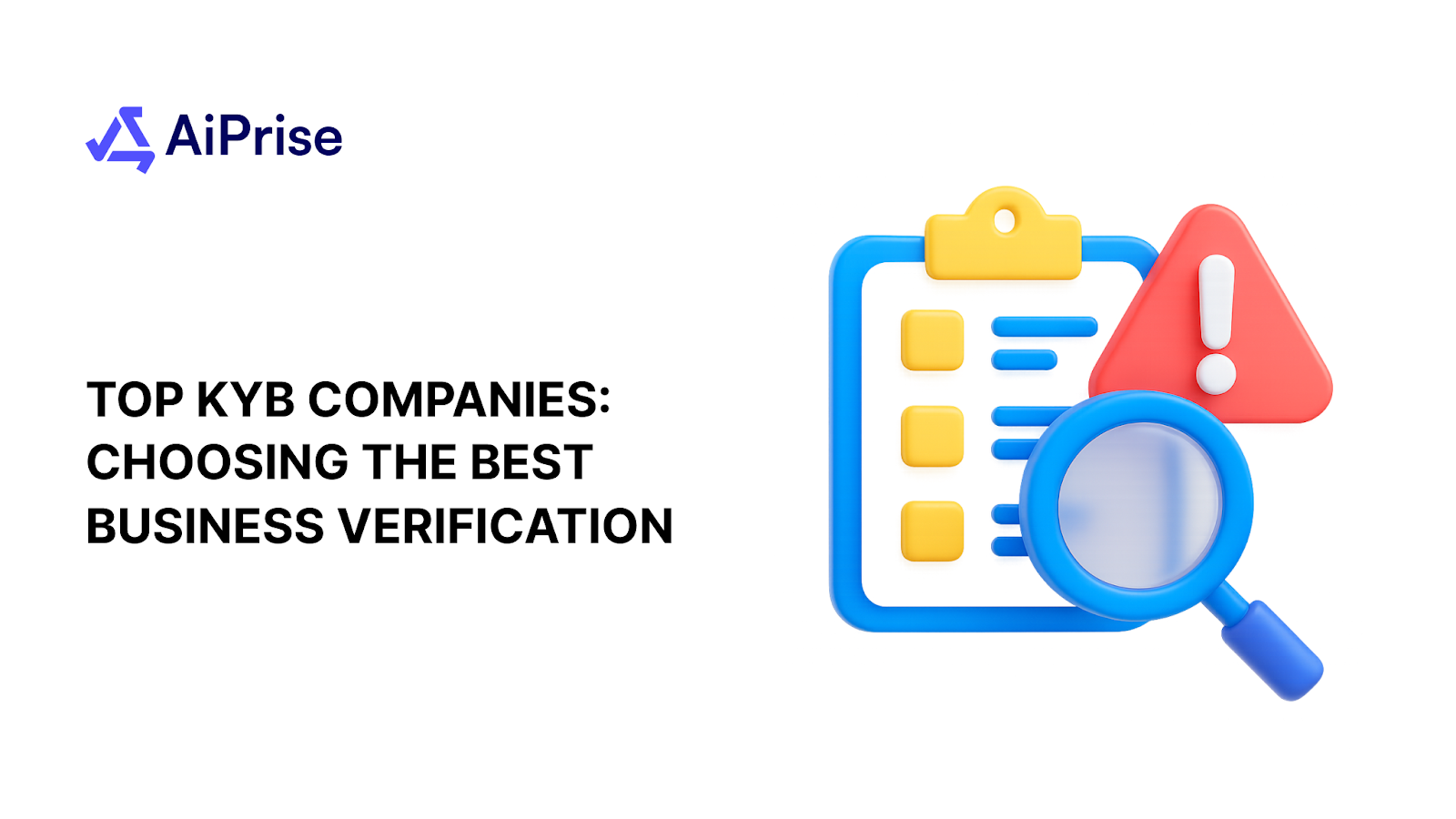
%20Can%20Improve%20Your%20Compliance%20Strategy.png)
